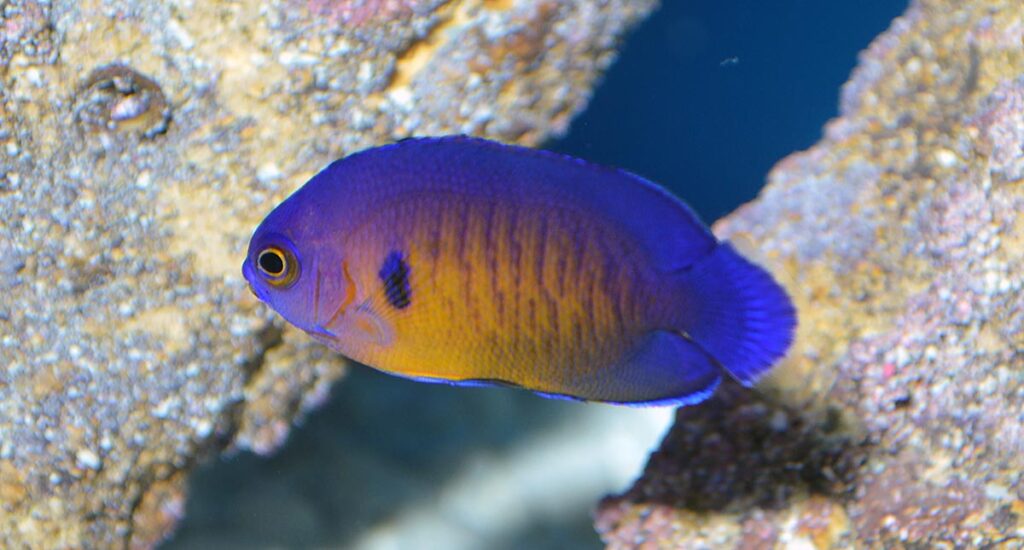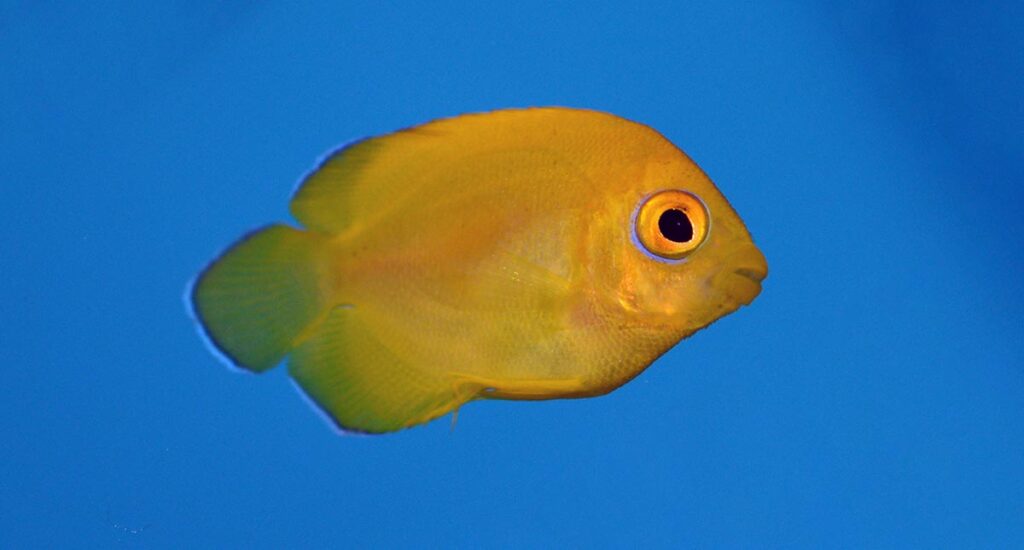
Nearly pristine: the first look at captive-bred Lemonpeel Angelfish, Centropyge flavissima, from ProAquatix.
Captive-bred marine angelfish aren’t new; they have a long history going back all the way to Martin Moe’s efforts with Florida’s Pomacanthus before many reefkeepers were even alive. However, it has taken decades to get the aquarium trade to the point where a captive-bred marine angelfish is a ubiquitous offering.
In recent years, Indonesia-based marine ornamental fish farm Bali Aquarich has become one of the most active producers of captive-bred Pomacanthids for the aquarium trade, but they are far from the only ones. Tennessee-based Sustainable Aquatics shared some successes in the past few years, and Biota in Palau has made the captive-bred Coral Beauty (Centropyge bispinosa) a routinely-available option for aquarists. Poma Labs broke onto the scene by producing some remarkable high-end Chaetodontoplus species, and even the world’s first longfin angelfish, which also happened to be a hybrid!
A few other sources have come and gone over the years as well, so it’s fair to say that captive-bred marine angelfishes are becoming rather mainstream and will likely be available with increasing frequency and diversity. The 2020 Global Pet Expo saw two more well-established marine fish hatcheries break into the captive-bred angelfish market for the first time.
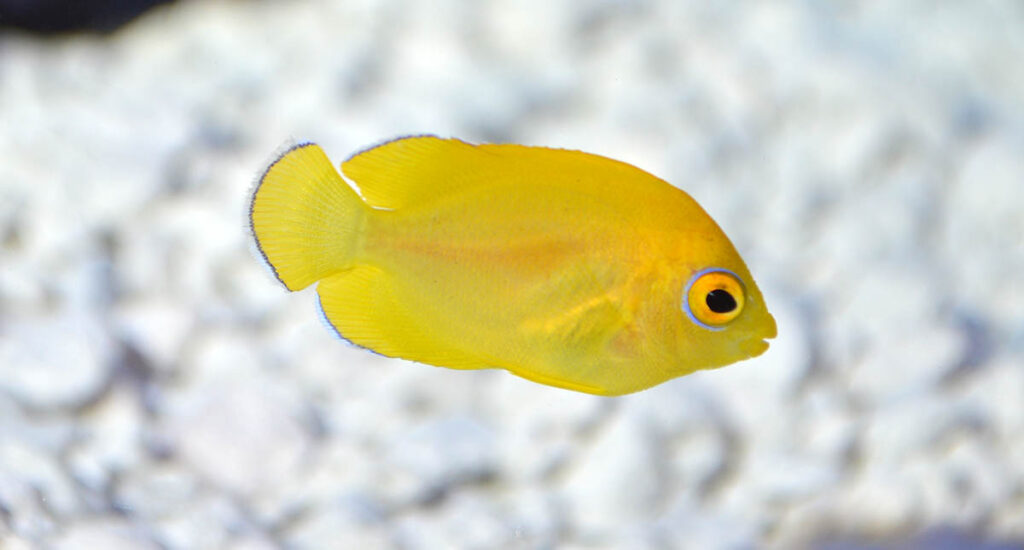
Still quite small, this Proaquatix Lemonpeel Angelfish has already lost the black ocelli that are on the flank of smaller babies.
Proaquatix, located in Vero Beach, FL, is no stranger to working with pelagic-spawning fishes; Lookdowns (Selene vomer) and Jackknife Fish (Equetus lanceolatus) are some of their signature offerings. It is not surprising to see their experience leveraged into producing captive-bred Lemonpeel Angelfish (Centropyge flavissima). Based on wholesale pricing, you can expect a captive-bred Lemonpeel to cost about 60% more than its wild-caught counterpart. Of course, one of the highlights of these captive-bred offerings is that the fish are simply adorable, and far smaller than anything you’d routinely see offered from the wild. It’s important to remind everyone that a small, 1-inch (2.5 cm) baby angelfish will need multiple feedings per day, as well as grazing options. When properly cared for, captive-bred angels grow quickly!
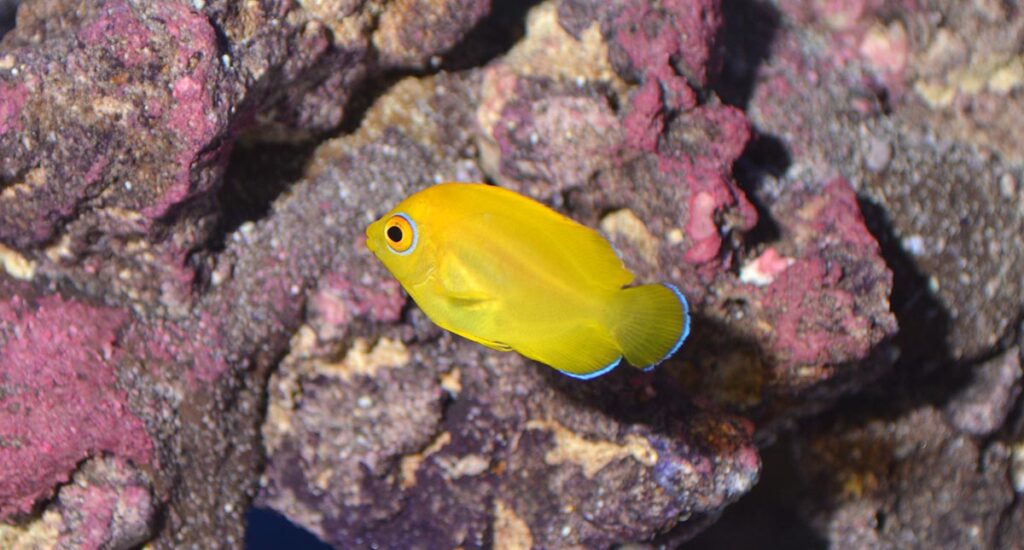
One more for a sense of scale against the live rock. Also on display were Neon Gobies (Elacatinus oceanops) that were easily twice as large as this baby Lemonpeel from Proaquatix.
ORA didn’t miss out on the opportunity to also reveal that they’ve been pursuing the production of captive-bred dwarf angelfishes in their Ft. Pierce, FL, facilities. What they showcased were well-grown Coral Beauty Angels (Centropyge bispinosa). It makes sense that with ORA’s unveiling of reinstated dragonet aquaculture, the foods and materials needed to work with pelagic-spawning fishes would allow them to attempt and succeed with angelfish culture as well.
Since their Global Pet Expo debut, both ORA’s Coral Beauties and the Proaquatix Lemonpeels have been released to the aquarium trade. For ORA’s part, we can also share that we’ve been given an inside look at two more Centropyge species that have been successfully bred in-house. We’re not at liberty to say whether these species will be disclosed and put into active production, but aquarists are invited to speculate!
Update – One of ORA’s Secrets Revealed!
4/17/2020 – ORA just announced the release of their captive-bred African Flameback Angelfish, Centropyge acanthops.
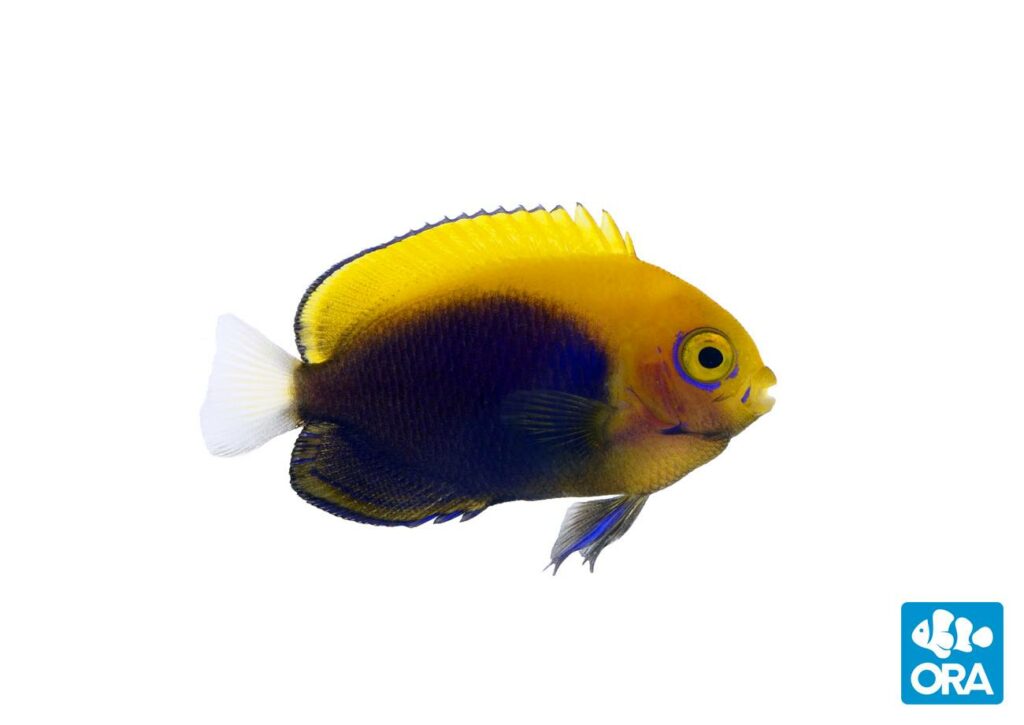
ORA’s captive-bred Centropyge acanthops are due to start shipping to customers on Monday, April 20th, 2020.
